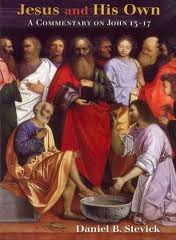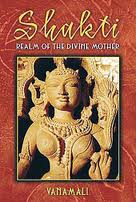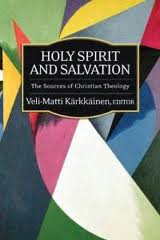SEEK GOD’S KINGDOM
May God’s kingdom come speedily, even in our day
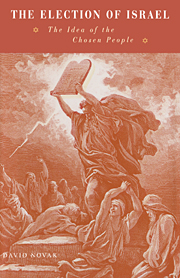
“The ultimate consequent of the election of Israel is the final redemption itself (ge’ulah). However, it is not the automatic result of what transpires now in the present. It is not the mere project of either election or revelation. It should not be seen as the fulfillment of hegemony of the covenant (torat yisra’el) inasmuch as the Torah in toto is concerned with more than Israel, but also with the elementary norms that the creator has enabled all humans to discover with intelligence and good will in their own social nature. And it is also concerned with God’s absolute decrees (gezerot), which seems to have no historical meaning at all and, hence, no covenantal intent. Furthermore, it should not be seen as the fulfillment of the hegemony of the Torah qua universal moral law inasmuch as the Torah is mostly concerned with the irreducible singularity of Israel’s historical existence. Accordingly, the final redemption should not be taken as a projection from either of these two modes of the Torah. All that can be known about the final redemption, then, is that the estrangement between God and Israel and God and the world will ultimately be overcome. And God’s redemption of Israel will be central to this cosmic redemption.
Only when the election of Israel or the revelation of the Torah is seen as a means to another evident end-be that end the hegemony of the convenantal Torah or the hegemony of the universal Torah-only then is the redeemed future seen as a simple projection from the present into the future rather than as a divine trajectory from the future into the present. In the modern age, such projections have frequently declared themselves here and now to be some humanly achieved ‘beginning of redemption’ (atehalta de-ge’ulah) in one form or another. However, as a new divine trajectory into history and nature the final redemption can only be hoped for; it cannot be predicted, let alone achieved by humans. We can only have faith that it will come; we cannot have any knowledge of what it will be.
This philosophical approach to the theological doctrine of the election of Israel has profound implications for the two most pressing political questions facing the Jewish people today: (1) Who is a Jew? (2) What is the relationship of Jews with non-Jews to be?…
It says that Israel’s election is an intimate matter between her and God. By not reducing the entire Torah to this relationship, but rather by emphasizing its universal aspect as well, the doctrine of election enables Jews to function as equals with non-Jews in those areas where common human issues of peace, justice and righteousness are at stake between them. It does not say that election creates any special privileges in the world, even those of noblesse oblige. And by not seeing the redeemed future as any kind of projection from a present human state of affairs, Israel cannot claim to be any more redeemed than anyone else. This lack of redemption, either Jewish or universal, is a point Jews have always emphasized when the adherents of other religions and ideologies have made triumphalist claims against us, claiming that the world is already redeemed. But what God will finally do with the world is as mysterious as what God has been doing with Israel in the past and the present. Against the hidden horizon of the final redeemed future, everything past and present is ultimately provisional. God has not yet fulfilled his own purposes in history.
May God’s kingdom come speedily, even in our day!”
David Novak, The Election of Israel: The Idea of the Chosen People
Cambridge University Press (May 26 1995) pp. 252-55
“Salvation … includes the health of the body. Jesus makes ‘the whole human being’ well (John 7.23)”
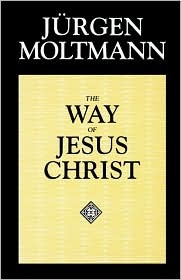
“Salvation does not mean merely ‘spiritual benefits’. It includes the health of the body. Jesus makes ‘the whole human being’ well (John 7.23).” “Salvation, then, is the summing-up of all the healings. Since it is part of the lordship of God, it is as all-embracing as God himself and cannot be restricted to part-sectors of creation. It is not `the salvation of the soul’, although of course the sick person’s soul also has to be healed. Nor can we exclude any particular earthly sphere from salvation, giving it the name of ‘well-being’ or ‘welfare’ and subtracting it from the influence of Jesus’ lordship. ‘Salvation is an entity which includes the wholeness and well-being of human beings. Salvation is for the totus homo; it is not merely salvation of soul for the individual.’ Salvation does not mean merely ‘spiritual benefits’. It includes the health of the body. Jesus makes ‘the whole human being’ well (John 7.23).
It is no less wrong to push salvation off into a world beyond this one, and to limit its effects to an invisible life of pure faith, outside empirical experience. Nor should we make the healings external signs of the inner process of the forgiveness of sins. The healing of the sick and the forgiveness of sins are necessary, and the one cannot be reduced to the other. At the same time, however much we stress the holistic nature of salvation, which is grounded in the power of God, there is a difference between salvation and healing which cannot be overlooked: Healing vanquishes illness and creates health. Yet it does not vanquish the power of death. But salvation in its full and completed form is the annihilation of the power of death and the raising of men and women to eternal life. Even the dead whom Jesus healed and raised – Lazarus, for example – were still subject to the power of death, and later died again. It is therefore correct when Paul (I Thess. 5.8; Rom. 8.24) sets salvation ‘in the mode of hope’ (as W. Schrage puts it). He does not assign salvation generally to a future for which we can only hope; we may put it more precisely, and say that he sets it in the mode of hope for the resurrection; for only this is the hope for the annihilation of death itself (I Cor. 15.28) and the liberation of the whole creation from that power of annihilation. Healings and salvation are related to one another in such a way that the healings are signs, this side of death, of God’s power of resurrection or, as John says, signs of Christ’s ‘glory’; while salvation is the fulfilment of these prefigured real promises in the raising of the dead to eternal life. Just as healing overcomes sickness, so salvation overcomes death. Because every sickness is a threat to life, and is therefore a foreshadowing of death, every healing is a living foretoken of the resurrection. The therapeutic significance of redemption lies in the healing of men and women in their essential being that is, in the becoming whole of what has been separated by death, and in the universal elimination of the germ of decay and mortality.
Salvation in this sense has two sides to it, one personal and one cosmic. Paul calls the personal side of salvation `the resurrection of the dead’. He calls the cosmic side `the annihilation of death’. It is only if we see the two sides together that we understand that salvation also means `the transfiguration of the body’ (Phil. 3.21) and `the new earth’ (Rev. 21.4).”
Jurgen Moltmann. The Way of Jesus Christ (Kindle Locations 1676-1696). Kindle Edition.
Entrance into Kingdom of God which Jesus speaks is a future entrance, coincidental with final judgment
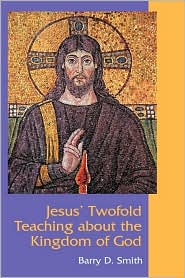
“Jesus teaches that a person must remove all impediments in order to to enter the Kingdom of God (eiselthein eis tên basileian tou theou) (Mark 9:47), which is synonymous with to enter into life (eiselthein eis tên zoên) (Mark 9:43, 45), since it is better to do without any so-called advantage than to miss entering the Kingdom of God or into life. (The term ‘Kingdom of God’ is synonymous with ‘life.) This is expressed metaphorically as being willing to cut off one’s hands and one’s feet and being willing to remove one’s eye, if necessary. The analogy between sin and a part of one’s body is that, like the latter, the former may be a cherished part of one’s livelihood and identity, which one may be understandably reluctant to thrust aside since the loss of it would be keenly felt.
One’s bodily parts represent what is closest and most valuable to a person, which must be given up if it impedes entrance into the Kingdom of God or life. The consequence of not being willing to sacrifice anything to enter the Kingdom of God or life is punishment in Gehenna (or eternal fire). The entrance of which Jesus speaks is a future entrance, coincidental with final judgment; in fact, one must pass through final judgment in order to enter the Kingdom of God as future or life.”- Professor Barry Smith
“The entrance (into the Kingdom of God) of which Jesus speaks is a future entrance, coincidental with final judgment.’
‘Central to the synoptic gospels is Jesus’ proclamation of the Kingdom of God. Jesus’ primary mission to his people was to offer them the possibility of eschatological salvation, which, for the most part, he expressed by the term ‘Kingdom of God.’ (A synonym for the Kingdom of God is the Kingdom of Heaven, found in the Gospel of Matthew.)…
Kingdom of God in the midst of You (Luke 17:20-21)
20 Being asked by the Pharisees when the Kingdom of God was coming, he answered them,’ The Kingdom of God is not coming with signs to be observed; 21 nor will they say, ‘Lo, here it is!’ or athere!’ for behold, the Kingdom of God is in the midst of you.’
Luke contains a saying in which Jesus describes the nature of the appearance of the Kingdom of God; in it he connects the Kingdom with himself. The Pharisees ask Jesus when the Kingdom of God will come in 17:20a. Jesus’ response in 17:20b-21 is constructed in antithetical parallelism. The negative member of Jesus’ response consists of two coordinating clauses joined by ‘nor,’ which describe how the Kingdom of God does not come: ‘The Kingdom of God is not coming with signs to be observed, nor will they say, ‘Look, here it is!’ or, ‘there it is!’ ‘The first way in which the Kingdom does not come is’ with signs to be observed’ (meta paratêrêseôs). In the context, the meaning of ‘signs to be observed’ probably describes empirically observable phenomena associated with the inception of eschatological fulfillment. Jesus’ questioners hold the view that the coming of the Kingdom of God will be universally recognizable by its accompanying manifestations, and they want to know when Jesus believes these premonitory manifestations will begin to occur, thereby heralding the Kingdom. (On this interpretation ‘come’ has a future meaning since it is referring to the future Kingdom of God.) The second way in which the Kingdom of God does not come is in such a way that someone could say ‘Look, here it is!’ or, ‘There it is!’ The meaning seems to be the same as ‘with signs to be observed.’ In other words, Jesus is saying that, contrary to their expectation, the Kingdom of God will not come in such a way as to be universally recognized as such. He rejects the presupposition behind the question, namely that the Kingdom of God will all at once come as a publicly observable event. In other words, the Kingdom will not come all at once, as full-blown, so that no one could deny that it has come. Rather, Jesus’ conception of the Kingdom of God is that it begins inconspicuously, so that it is possible to deny that it has come at the earliest stages of its historical development.
The positive member of Jesus’ response is the remarkable statement that the Kingdom of God has already come: ‘For behold, the kingdom of God is in your midst (entos humôn).’ Jesus’ point is that the Kingdom of God is in the midst of his questioners insofar as he is in their midst, so inseparable is he from the Kingdom. Of course, the Kingdom is in its initial phases and so is still only partially and even ambiguously present. For this reason, the possibility exists to deny that it is present at all, in which case Jesus would be seen as having no salvation-historical significance at all. When it comes to completion, the Kingdom of God will be undeniable, but until then a person will be able to accept or reject Jesus’ claim that the Kingdom of God is already present insofar as he is present…
Entering the Kingdom Maimed (Mark 9:43-48 = Matt 18:8-9)
Mark 9:43-48
43 And if your hand causes you to sin, cut it off; it is better for you to enter life maimed than with two hands to go to hell, to the unquenchable fire. 44 [omitted] 45 And if your foot causes you to sin, cut it off; it is better for you to enter life lame than with two feet to be thrown into hell. 46 [omitted] 47 And if your eye causes you to sin, pluck it out; it is better for you to enter the Kingdom of God with one eye than with two eyes to be thrown into hell, 48 where their worm does not die, and the fire is not quenched.
Matt 18:8-9
8 And if your hand or your foot causes you to sin, cut it off and throw it away; it is better for you to enter life maimed or lame than with two hands or two feet to be thrown into the eternal fire. 9 And if your eye causes you to sin, pluck it out and throw it away; it is better for you to enter life with one eye than with two eyes to be thrown into the hell of fire.
Jesus teaches that a person must remove all impediments in order to to enter the Kingdom of God (eiselthein eis tên basileian tou theou) (Mark 9:47), which is synonymous with to enter into life (eiselthein eis tên zoên) (Mark 9:43, 45), since it is better to do without any so-called advantage than to miss entering the Kingdom of God or into life. (The term ‘Kingdom of God’ is synonymous with ‘life.’) This is expressed metaphorically as being willing to cut off one’s hands and one’s feet and being willing to remove one’s eye, if necessary. The analogy between sin and a part of one’s body is that, like the latter, the former may be a cherished part of one’s livelihood and identity, which one may be understandably reluctant to thrust aside since the loss of it would be keenly felt. One’s bodily parts represent what is closest and most valuable to a person, which must be given up if it impedes entrance into the Kingdom of God or life. The consequence of not being willing to sacrifice anything to enter the Kingdom of God or life is punishment in Gehenna (or eternal fire). The entrance of which Jesus speaks is a future entrance, coincidental with final judgment; in fact, one must pass through final judgment in order to enter the Kingdom of God as future or life.”
Professor Barry Smith
http://www.mycrandall.ca/courses/NTIntro/KingdGod2.htm
Web (Extracted May 5, 2013)
“According to the New Testament, the central message of Jesus was the kingdom of God. He called for repentance in preparation for the kingdom that was at hand. The kingdom of God referred to the reign or rule of God, and in Jesus’ ministry that reign of God was announced as present. The presence of the kingdom, however, was not full and complete, and, therefore, was often referred to as a future event. Students of the New Testament have argued over whether Jesus and his followers expected the kingdom of God to be fully present in their generation. The unresolved state of that debate is registered in the two expressions often used to characterize the New Testament teaching about the kingdom: ‘already’ and ‘not yet.'”
MSN Encarta Encyclopedia

Shri Mataji Nirmala Devi (1923-2011): Christian by birth, Hindu by marriage and Paraclete by duty.
“As Stanley and John argue, “… it is the Holy Spirit announcing the good news about Jesus Christ, which Word the church speaks in the Spirit’s power and by the Spirit’s authority, and which is thereby connected to Christ himself.” (Varkay 2011 Kindle 255
“Now the Time has come to start talking, announcing, telling about it to everyone. Otherwise the world would say that we never knew about it…. You must have that vision before you that I have put many a times before you people that you have to emancipate the humanity…
You may tell people but the new announcement has to come to say that running after falsehood is not going to take you to God. We believe in the power of Love, and not in the power of hatred. We believe that everyone is capable of finding the truth and getting to the heaven of that paradise which is promised to us, the kingdom of God.”
THE MOTHER: Messiah-Paraclete-Ruh
Rome, Italy—May 6, 1990
“Today I want to tell you about the Agnya Chakra, about Jesus Christ, who advanced to this center of Agnya Chakra where you see this red mark (bindi on forehead). Behind that, inside the brain on the crossing of the optic chiasma, is this subtle center where this great Deity is placed through His crucifixion. And through His Resurrection He has created this space for us to enter into the Kingdom of God (Sahasrara Chakra) which is placed within us. It is not without.”
The Paraclete Shri Mataji
The New Age Has Started, Houston, USA—October 6, 1981
“The Sushumna is the central channel for our evolution. It is through this channel that we become Collectively Conscious and all the disparate factors of our being are integrated into one whole. It makes the connection between our conscious mind and the auto of the autonomous system, the Spirit, which is a reflection of God. Sushumna is the way of Dharma, the straight and narrow path by which we pass through the Gate of the Agnya Chakra to enter into the Kingdom of God in the Sahasrara.”
The Paraclete Shri Mataji

Shri Mataji Nirmala Devi (1923-2011): Christian by birth, Hindu by marriage and Paraclete by duty.
The Experience of the Spirit: “A distinctivefeature of this new search for the Spirit and spiritual life is that rather than looking for generalizations and abstract definitions, as too often has been the case in the past, people are experiencing a hunger for a concrete, lived experience of the life-giving Spirit: Many faithful desire to encounter a Holy Spirit who brings new life to their spirits in the concrete circumstances of their lives and who renews the face of the earth as we approach the third millennium. Not unlike earlier times of perceived crisis, Christians today attempt to reconnect with the wellsprings of the faith, hoping these roots will bring stability, order and meaning to a postmodern world that is often felt to be hopelessly fragmented. In particular, many seek to retrieve a three-personed God who is related to the human community and to the entire universe in love, challenge, and care—a personal God who identifies with human joys and sorrows.” Karkkainen (2002) 13
“In the history of spirituality, it is one of the greatest days when we find Christ rose from the dead. It is very significant and symbolic that in Sahaja Yoga, also what we have done, is to rise from the dead — into life. It is to be understood that resurrection is the message for all of us, for the whole world. We have to resurrect ourselves.”
THE MOTHER: Messiah-Paraclete-Ruh
Istanbul, Turkey—April 15, 2001
“The Kingdom of God that we were promised is at hand. This is not a phrase out of a sermon or a lecture, but it is the actualization of the experience of the highest Truth which is Absolute, now manifesting itself in ordinary people at this present moment.”
THE MOTHER: Messiah-Paraclete-Ruh
“Today we are celebrating the opening of the Sahasrara (Kingdom of God). On this day I must say it was a great happening that took place on all the humanity. It was such an achievement, which I never realized before. Now I can see that without Self-Realization it would have been impossible to talk to people. Then this happened! I thought that how I will talk to people about it because no one would understand Me and it would be a big mistake on My part to say something about Sahasrara because even about Sahasrara (Kingdom of God) nowhere in the scriptures something was described. It was absolutely an ambiguous description I would say where people could not even have thought there is a Realm beyond Sahasrara, and one has to enter that Realm where is the Reality. That time what I saw around Me was darkness and unless and until there are many Lights, people will never realize that how important it is to have Light.”
The Paraclete Shri Mataji
Cabella, Italy—June 9, 1996
“The work is tremendous. it’s not for medium, mediocre people to do this job. Frightened, fearful, arrogant, cheeky – they cannot, they have no mettle…. Tell all the nations and tell all the people all over the Great Message that the Time of Resurrection is here. Now! At this time, and that you are capable of doing it.”
The Paraclete Shri Mataji
Cowley Manor Seminar, UK—July 31, 1982
“Today, Sahaja Yoga has reached the state of Mahayoga, which is en- masse evolution manifested through it. It is this day’s Yuga Dharma. It is the way the Last Judgment is taking place. Announce it to all the seekers of truth, to all the nations of the world, so that nobody misses the blessings of the Divine to achieve their meaning, their absolute, their spirit.”
The Paraclete Shri Mataji
“The main thing that one has to understand is that the time has come for you to get all that is promised in the scriptures, not only in the Bible but all the scriptures of the world. The time has come today that you have to become a Christian, a Brahmin, a Pir, through your Kundalini awakening only. There is no other way. And that your Last Judgment is also now.”
The Paraclete Shri Mataji
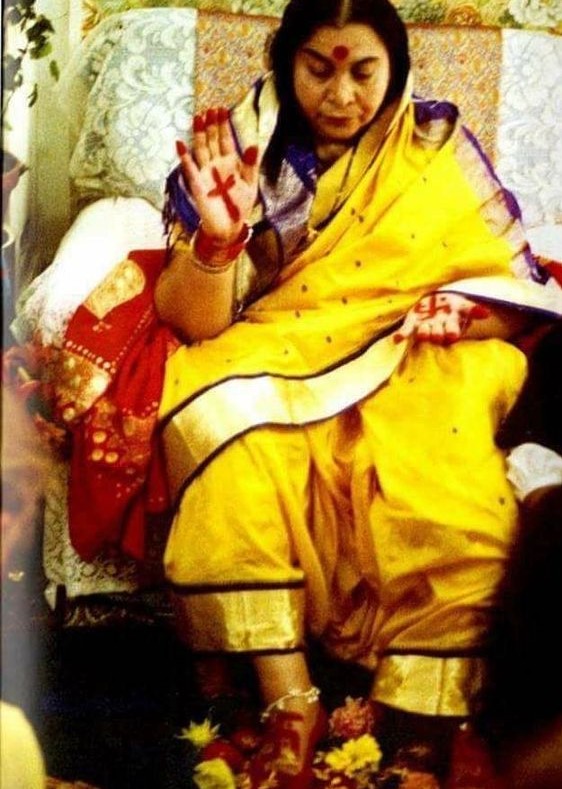
Shri Mataji Nirmala Devi (1923-2011): Christian by birth, Hindu by marriage and Paraclete by duty.
The Paraclete Shri Mataji from May 5, 1970 onwards commenced the Resurrection that fulfills the Savior’s 2000-year-old promise of life eternal in the Kingdom of God. However, thousands of Her disciples—led by leaders having no faith or conviction—have refused to declare the Good News (This Gospel of the Kingdom shall be preached in the entire world for a witness unto all nations. Matthew 24:1) and Al-Naba, (The Great Announcement of Al-Qiyamah [The Resurrection] surah 78:1-5).
And May 5, 2020 will mark five decades of an unprecedented collective rejection of the Good News by Her disciples (Sahaja Yogis), a blasphemy that Jesus clearly warned 2000-years ago: “And whoever speaks a word against the Son of Man will be forgiven, but whoever speaks against the Holy Spirit will not be forgiven, either in this age or in the age to come.” (Matthew 12:32).
“Mark 3:28-30 = Matt 12:31a, 32b; Matt 12:31b -32a = Luke 12:10. Jesus says that the one who speaks against the Holy Spirit will not be forgiven. To speak against the Holy Spirit is to reject the message of the Kingdom of God and its messenger.” Prof. Barry D. Smith (Ph.D), Crandall University
“Of course there are some absurd things which grew with misinterpretation and interference from unholy people, which are common in these religions. For example, Jews, Christian and Muslims believe that when they die their bodies will come out of their graves and they will all be resurrected at the Time of Resurrection, at the Time of Last Judgment, at the Time of Qiyamah. It is illogical to think what will remain inside those graves after five hundred years. Nobody wants to think and understand that it is not the body but the soul that will come out of these bodies, be born again as human beings and be saved through Qiyamah and Resurrection.”
THE MOTHER: Messiah-Paraclete-Ruh
“The Indian sage, who may be called the pioneer in this field, was the first great astrologer Bhrigumuni. In his book Nadi Granth, he made clear predictions about these Modern Times. He also specifically predicted how the Kundalini would be awakened spontaneously through Sahaja Yoga, that is, spontaneous union with the Divine, and become the means of both individual and collective transformation on a large scale, through teaching incarnation of a great Yogi. This Yogi would be an unparalleled master of the Kundalini and would teach all the people the ancients secrets of self-transformation. These are the times described in the Holy Bible as the Last Judgment and in the Koran as Qiyamah — the Resurrection Time. Astrologically it also called the Age of Aquarius, the Time of Rebirth and of great spiritual development on the Earth.”
The Paraclete Shri Mataji
“Though you can understand that Mother’s Love makes it very easy for you to get to your Realization and that the whole story of Last Judgment, which looks such a horrifying experience, has been made very beautiful, and very tender, and delicate, and does not disturb you.”
The Paraclete Shri Mataji

